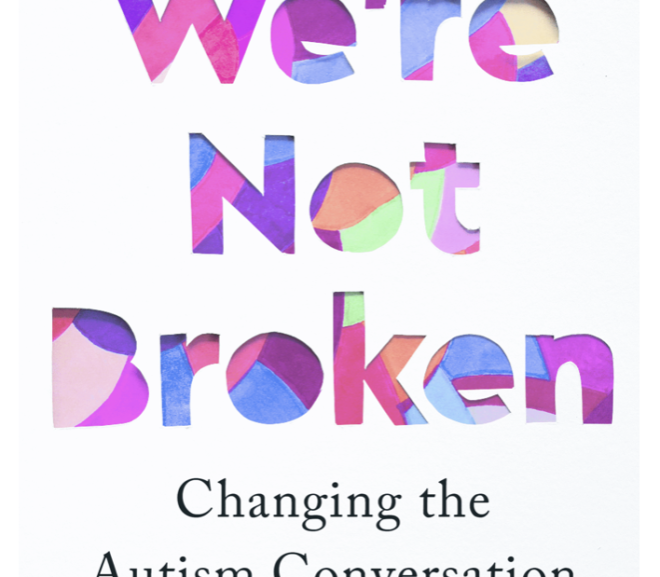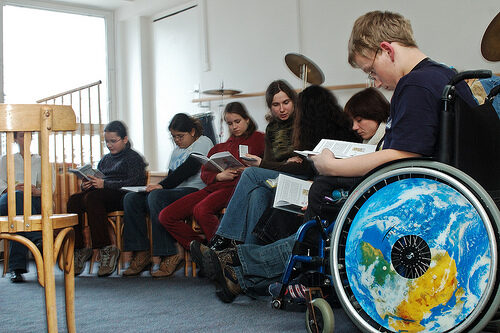“The way we diagnose kids overwhelmingly leads to Black and Latino kids getting diagnosed with behavioral disorders instead of autism. It also excludes a lot of women and femme people, to say nothing of transgender males and nonbinary people. We also ignore a lot of people for whom English is a second language.”
Tag: IDEA
We recently co-hosted a webinar on Disability and Inclusion Strategies During COVID-19 with Magical Bridge foundation, to address some of the issues disabled and autistic people and their families are struggling with right now. Jill Asher from Magical Bridge moderated, TPGA’s senior editor Shanon Rosa ran the questions, and our panelists were three disabled parents of chidren with disabilities: Our own editor Carol Greenburg, and disability consultants Anne Cohen and Deborah Vick. We hope this is the first of many useful sessions! Video and full transcript below. Jill Asher: Hi everyone. Good morning, or good afternoon wherever you are. My name is Jill Asher. I’m the executive director and co-founder of Magical Bridge. We are so incredibly grateful to have you join us today as we discuss disability and inclusive strategies during COVID-19. We hope everyone is safe and health and sheltering in place right now, wherever you are. A…
Kris Guin queerability.tumblr.com Photo © World Bank, Creative Commons License [image: Students of different backgrounds and abilities, reading books.] During the questioning phase of Betsy DeVos’s Senate confirmation process for U.S. Secretary of Education, DeVos, a “school choice” advocate, demonstrated a lack of knowledge about, and a lack of commitment to, enforcing the Individuals with Disabilities Education Act (IDEA) — the law that requires schools to provide a free, appropriate education for students with disabilities. DeVos’s ignorance about IDEA has caused many individuals with disabilities and their families to become very concerned about their or their family member’s access to public education, and understandably and rightfully so. Individuals with disabilities and their families rely on robust implementation of laws like IDEA for equal educational opportunities. Stemming from this concern are calls from some to pull children with disabilities out of public education, and then homeschool them. I, and many other…
Tom Perez, upholder of the ADA source: Wikimedia Commons [image: Tom Perez, a Dominican- American Man with a goatee and glasses, in front of a sign reading “Next 25 Years of the ADA”] The bigotry-rooted horrors of the first two weeks of the Trump administration have been coming at dismayed Americans almost faster than we can keep up with them. Those who are reeling, from today’s appointment of civil rights slackard Jeff Sessions as Attorney General, yesterday’s nomination of Neil Gorsuch—who has ruled that autistic students don’t deserve equal education rights—for the empty Supreme Court justice seat, or public schools enemy Betsy DeVos’s pending confirmation as Secretary of Education, may be wondering who we can rely on to protect our community’s rights. I have an answer for you: Tom Perez. Former Obama Labor Secretary Perez is running for chair of the Democratic National Committee, the organization that guides the Democratic…
The Autistic Self-Advocacy Network’s Ari Ne’eman and Steven Kapp have released a policy brief: What Are the Stakes? An Analysis of the Impact of the DSM-5 Draft Autism Criteria on Law, Policy and Service Provision [PDF]. The full PDF brief can be found at bit.ly/DSM-5, and “…summarizes the legal and policy details of the program under discussion and attempts to identify the likely implications of the DSM-5’s outlined changes in the criteria for Autism Spectrum Disorder on eligibility, benefits, and access to services and legal rights.” The legal and policy areas in question are described, then followed by analyses of the proposed DSM-5 changes’ implications: Individuals with Disabilities Education Act (eligibility criteria) Impact of DSM-5 Shifts on Students with Disabilities Receiving Services Under IDEA ADA/504 Accommodations (guaranteeing non-discrimination re: disability in schools and in the workplace) Impact of DSM-5 Shifts on ADA/504 Protections Medicaid-Funded Developmental Disability Services Impact of the…
Elise, A.K.A. aspergers2mom asd2mom.blogspot.com We have all heard the stories. That mother who just won’t listen when administrators talk about her child, the parent they delegitimize because she got frustrated and yelled at them, the one who thinks she knows her child best. So what do you do if you are faced with a problematic situation? How do you channel your frustrations to get your child the services they need? It wasn’t until I was in my forties that I learned that you need to do what you need to do for your kids — who cares what others think? This is what I call “embracing your inner bitch.” Now, embracing your inner bitch is a good thing. You use your frustration and your anger to motivate you, but you do so in a way that is calm, intelligent, and very thought-out. You leave the yelling and the kvetching…
Kristina Chew autism.typepad.com Prior to my son Charlie’s diagnosis of autism in July of 1999, I knew even less about special education than I did about autism. I literally didn’t know anyone — family members or friends — who had ever been in special ed. I had less than zero idea if any of the public schools I had attended back in the 1970s and 1980s in California had special ed classes. I’m sure they did; to say that I was ignorant is an understatement. Now I realize that my lack of experience and knowledge about special education back then speaks to a general attitude about special ed, a sense that it’s great that our society provides it, but best not talk to about it; that special ed is for “those kids” who don’t do well in school, or have behavior problems, and so forth. So here is a bit…
Barbara H. Boucher, OT, PhD, PT www.therextras.com My identity as an OT runs as deep as my sense of being an adult. I begin on a personal note because if you have trouble discerning a person’s face or need concrete affirmation of my being you might imagine me to have three heads: As a naive undergraduate I learned at the feet of Jean Ayers’ generation of occupational therapists. For reasons that are most easily characterized as my professional “developmental” trajectory, I became a physical therapist, also. A complete psychological profile of me might read that I received a great deal of reinforcement in an academic setting. From my Doctor of Philosophy (PhD) in Human Development and Family Sciences I claim the title of Child Development Specialist. If the words “occupational therapy” (OT) are new to you and accompanied your child’s diagnosis, you are not alone in struggling to understand what…


